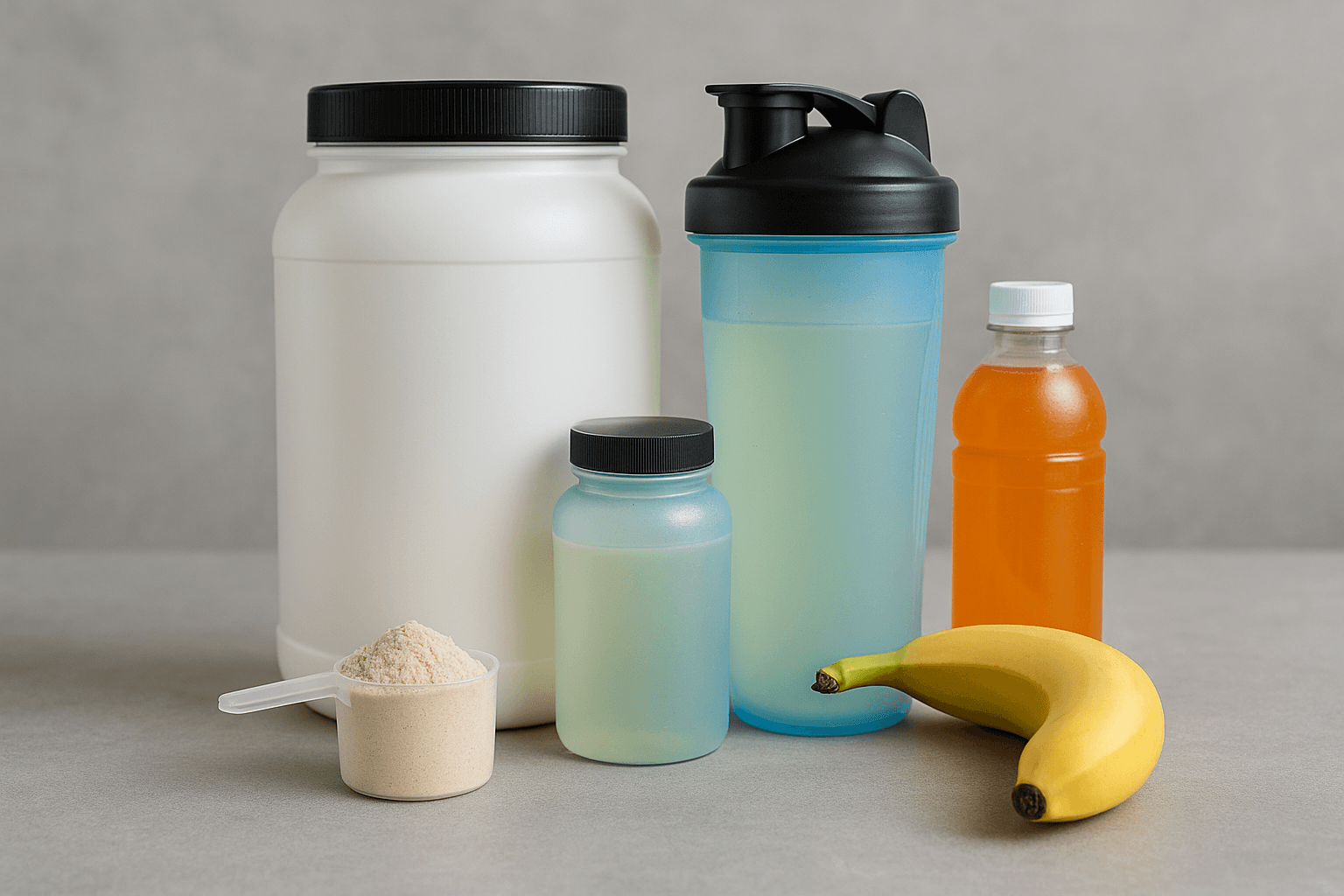
Supplements
A balanced supplement setup with protein powder, shaker bottle, electrolytes, and fruit, showing how players can support nutrition safely.
Basketball Supplements: Do Players Really Need Them?
Most of the nutrition basketball players need can come from regular food—carbs for energy, protein for recovery, and fats for balance. But sometimes, players wonder if supplements can give them an extra edge. While supplements are not magic solutions, the right ones can help fill small gaps in a player’s diet.
This guide explains what basketball supplements are, which ones may be useful, and what to avoid.
Why Supplements Are Used
Supplements are products like powders, shakes, or pills that provide extra nutrients. Some players use them to recover faster, boost energy, or support overall health.
Benefits of Supplements (When Used Correctly)
- Support recovery after intense games or workouts
- Provide quick and easy nutrition when food isn’t available
- Help fill small gaps in diet (like missing vitamins or protein)
Risks of Supplements
- Some products contain unsafe or untested ingredients
- Relying too much on supplements instead of real food
- Wasting money on products that don’t actually help
Common Supplements for Basketball Players
Protein Powder
- Purpose: Helps muscles recover and grow after practices and games.
- Best Use: After workouts when regular meals aren’t available.
- Examples: Whey, plant-based, or casein protein powders.
Creatine
- Purpose: Supports strength, quick bursts of energy, and recovery.
- Best Use: For older athletes (usually high school and up) under guidance.
- Note: Not needed for younger kids.
Electrolyte Drinks
- Purpose: Replace sodium, potassium, and fluids lost in sweat.
- Best Use: During long practices, hot conditions, or tournaments.
Multivitamins
- Purpose: Cover small nutrient gaps in a daily diet.
- Best Use: When players don’t eat enough variety of foods.
What to Avoid
- “Performance boosters” promising instant results—they are often unsafe or unproven.
- Energy drinks loaded with sugar or caffeine—they can cause crashes or heart risks.
- Too many supplements at once—they won’t replace a balanced diet.
Guidelines for Players and Parents
- Always try to meet nutrition needs with real food first.
- If considering supplements, talk with a coach, trainer, or doctor.
- Read labels carefully and avoid products without safety testing.
- Remember: supplements are just a small piece of overall nutrition.
Final Takeaway
Supplements can help in some cases, but they are not a replacement for balanced meals. The most important “supplements” are still healthy food, water, and good rest. Players should focus on eating well every day, and only use safe, proven supplements when needed.